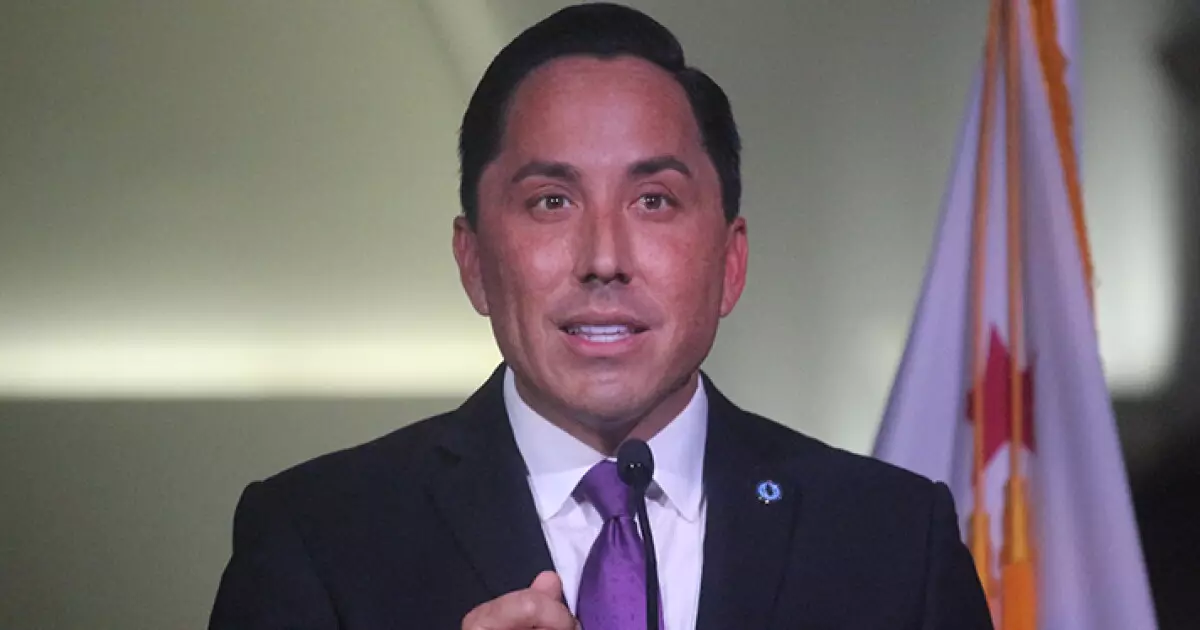San Diego Mayor Todd Gloria recently unveiled a $5.65 billion proposed budget that aims to address the city’s structural deficit through various short-term fixes and borrowing strategies. The budget includes one-time maneuvers such as eliminating scheduled reserve contributions and borrowing funds for infrastructure projects. While the budget prioritizes spending on homeless prevention programs, street paving, and flood abatement, it also includes cuts to non-personnel expenses and certain city services.
Mayor Gloria acknowledged that the proposed budget relies heavily on one-time measures that cannot be repeated in the following years. By diverting unused balances from special funds and suspending contributions to grant programs, the city aims to close a $200 million deficit in its general fund budget. The depletion of federal pandemic aid, which had previously alleviated structural deficit issues, has necessitated these temporary solutions.
One of the key highlights of Mayor Gloria’s budget is the increased spending on homelessness prevention programs, with a focus on creating more shelter options for homeless individuals. The budget includes funding for converting a former Navy land into spaces for the Safe Parking Program and signing a lease for a 1,000-bed homeless shelter in downtown San Diego. These initiatives aim to triple shelter options for homeless San Diegans and tap into state, local, and federal funding sources.
The proposed budget also emphasizes investments in infrastructure, including street paving, flood control, and green infrastructure projects. Mayor Gloria introduced a street paving management plan to prioritize funding needs and allocated funds for flood control projects on top of the investments made through federal programs. The budget plan includes WIFIA loans to cover stormwater upgrades and comprehensive watershed restoration efforts.
City leaders are considering two tax increase proposals that could provide additional revenue for next year’s budget. A 1 percentage point sales tax hike and a stormwater fee increase through a parcel tax are being evaluated to generate funds for flood prevention and other city services. The City Council will vote on whether to place these measures on the November ballot, which could potentially ease the budgeting process in the future.
Conclusion and Budget Approval Process
Mayor Gloria’s budget proposal will undergo further scrutiny and negotiations with the City Council before final approval. The challenges of addressing the city’s structural deficit, balancing investments in key priorities, and ensuring financial stability remain paramount. City officials and stakeholders will have to consider the long-term implications of borrowing and one-time fixes while working towards sustainable solutions for the city’s infrastructure and services.
Mayor Todd Gloria’s proposed budget reflects a nuanced approach to addressing San Diego’s financial challenges and investing in essential services. While the budget includes short-term fixes and borrowing strategies, it also prioritizes key areas such as homelessness prevention, infrastructure improvements, and green initiatives. The budget approval process and subsequent implementation will be crucial in determining the long-term impact of these proposed investments on the city and its residents.

